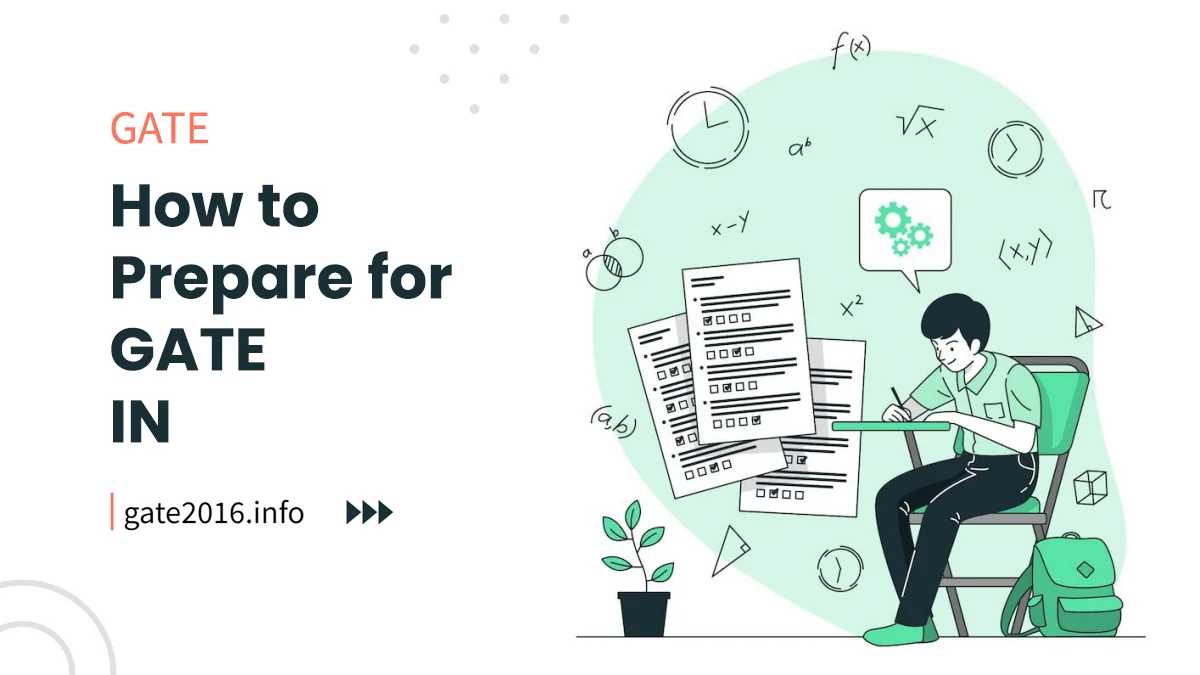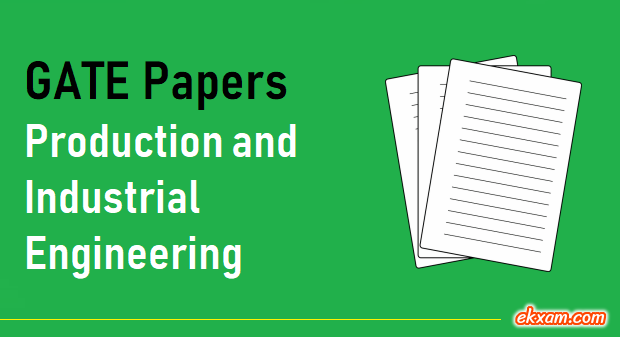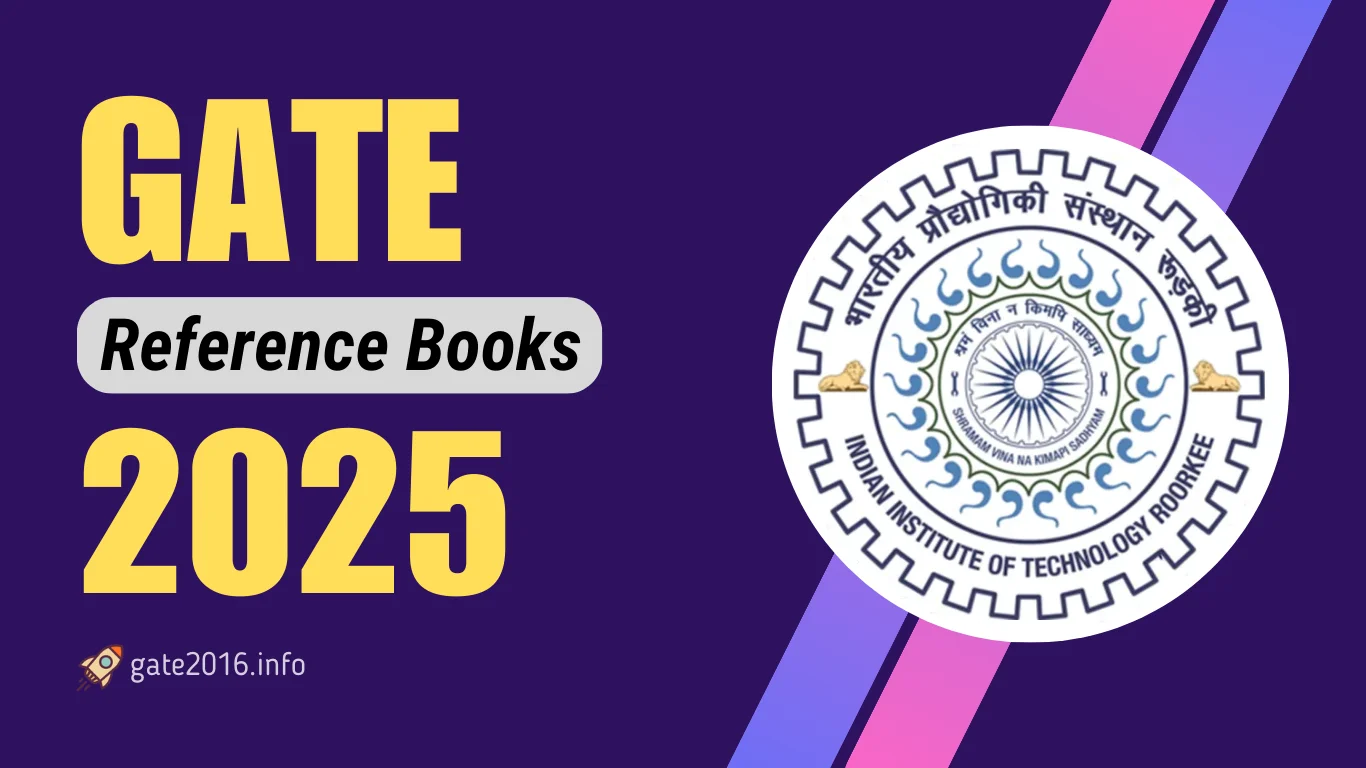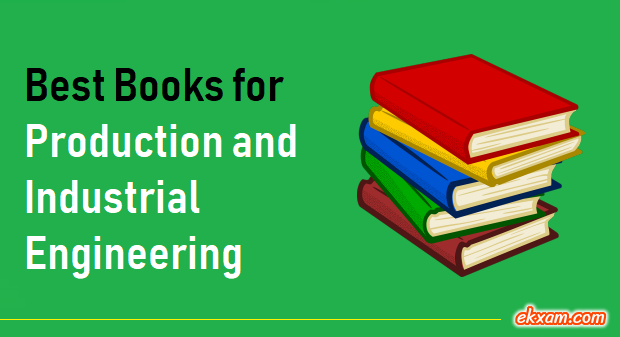Advertisements
Ratings

GATE 2024 IN Preparation – The Graduate Aptitude Test in Engineering (GATE) holds great significance for aspiring Instrumentation Engineers.
This specialized field encompasses the study of measurement and control of processes in various industries.
Effective preparation is essential to excel in the GATE Instrumentation Engineering exam.
This comprehensive guide provides strategies, tips, and a step-by-step approach to help you prepare thoroughly and achieve success in the exam.
Contents
- 1. Introduction to GATE Instrumentation Engineering
- 2. Understanding the GATE Instrumentation Engineering Syllabus
- 3. Developing a Structured Study Plan
- 4. Selection of Relevant Study Materials
- 5. Mastering Fundamental Concepts
- 6. Solving Practical Problems
- 7. Reviewing Previous Years’ Question Papers
- 8. Taking Mock Tests
- 9. Time Management Strategies
- 10. Implementing Revision Techniques
- 11. Staying Informed with Industry Trends
- 12. Managing Exam Stress
- 13. Final Weeks’ Preparation Strategy
- 14. Approaching Exam Day Confidently
- 15. Reflecting on the Exam and Planning Ahead
- Conclusion: Excelling in GATE Instrumentation Engineering
- Additional Resources and References
- GATE Instrumentation Engineering Guidance
- GATE Instrumentation Engineering Preparation FAQs
- GATE Total Information & Guidance
1. Introduction to GATE Instrumentation Engineering
GATE offers a platform for individuals interested in Instrumentation Engineering to showcase their knowledge and skills.
Adequate preparation is not only crucial for GATE success but also for building a strong foundation in measurement, control systems, and signal processing.
2. Understanding the GATE Instrumentation Engineering Syllabus
A profound understanding of the GATE Instrumentation Engineering syllabus is essential for effective preparation.
Let’s delve into the syllabus by breaking it down into subjects and key topics:
Table 1: GATE Instrumentation Engineering Syllabus Breakdown
| Subject | Key Topics |
|---|---|
| Engineering Mathematics | Linear algebra, Calculus, Probability, Statistics |
| Electrical Circuits | Circuit analysis, Network theorems, AC circuits |
| Signals and Systems | Signal classification, Fourier series, Laplace transform |
| Control Systems | Transfer function, Feedback control, Stability |
| Measurements | Measurement techniques, Sensors, Calibration |
| Analog Electronics | Amplifiers, Op-amps, Oscillators |
| Digital Electronics | Logic gates, Combinational circuits, Flip-flops |
| Sensors and Industrial Instrumentation | Transducers, Process control |
| Communication Systems | Modulation, Digital communication |
3. Developing a Structured Study Plan
Creating a well-structured study plan is the foundation of effective GATE Instrumentation Engineering preparation.
Organize your study plan by dedicating time to various subjects and topics based on their significance and complexity.
Table 2: Sample Study Plan
| Week | Subjects/Topics | Time Allocation |
|---|---|---|
| 1-2 | Engineering Mathematics | 10 hours/week |
| 3-4 | Electrical Circuits | 12 hours/week |
| 5-6 | Signals and Systems | 10 hours/week |
| 7-8 | Control Systems | 12 hours/week |
| 9-10 | Measurements | 10 hours/week |
| 11-12 | Analog Electronics | 12 hours/week |
| 13-14 | Digital Electronics | 8 hours/week |
| 15-16 | Sensors and Industrial Instrumentation | 8 hours/week |
| 17-18 | Communication Systems | 10 hours/week |
4. Selection of Relevant Study Materials
Choosing appropriate study materials is essential for comprehensive GATE Instrumentation Engineering preparation.
Utilize a combination of textbooks, online courses, video lectures, and practice tests for a holistic approach.
Table 3: Recommended Study Resources
| Subject | Books | Online Resources |
|---|---|---|
| Engineering Mathematics | “Higher Engineering Mathematics” by B.S. Grewal | Khan Academy’s Mathematics courses |
| Electrical Circuits | “Network Analysis” by M.E. Van Valkenburg | Coursera’s Electrical Engineering courses |
| Signals and Systems | “Signals and Systems” by Alan V. Oppenheim | NPTEL’s Signals and Systems course |
| Control Systems | “Automatic Control Systems” by Benjamin C. Kuo | MIT OpenCourseWare’s Control Systems course |
| Measurements | “Electronic Instrumentation and Measurement” by David A. Bell | Neso Academy’s Measurement Techniques videos |
| Analog Electronics | “Microelectronic Circuits” by Adel S. Sedra | Electronics Hub’s Analog Electronics resources |
| Digital Electronics | “Digital Design” by Morris Mano | All About Circuits’ Digital Electronics tutorials |
| Sensors and Industrial Instrumentation | “Principles of Industrial Instrumentation” by D. Patranabis | Instrumentation Tools’ Sensor resources |
| Communication Systems | “Communication Systems” by Simon Haykin | Electronics Tutorial’s Communication Systems guide |
5. Mastering Fundamental Concepts
Building a strong foundation in core Instrumentation Engineering concepts is pivotal.
Concentrate on essential principles within each subject:
Table 4: Mastering Fundamental Concepts
| Subject | Key Concepts |
|---|---|
| Engineering Mathematics | Matrix operations, Probability distributions, Complex numbers |
| Electrical Circuits | Ohm’s law, Kirchhoff’s laws, AC circuit analysis |
| Signals and Systems | Fourier transforms, System properties, Sampling theorem |
| Control Systems | Block diagrams, Root locus analysis, Nyquist criterion |
| Measurements | Transducers, Measurement errors, Data acquisition systems |
| Analog Electronics | Diode circuits, Operational amplifier applications |
| Digital Electronics | Logic gates, Sequential circuits, Memory devices |
| Sensors and Industrial Instrumentation | Types of sensors, Signal conditioning, Process control |
| Communication Systems | Amplitude modulation, Digital modulation techniques |
6. Solving Practical Problems
Practical problem-solving skills are as crucial as theoretical knowledge. Practice problems related to:
- Control Systems: Designing control systems, analyzing stability.
- Measurements: Calibrating sensors, error analysis in measurements.
- Analog Electronics: Calculating amplifier gains, designing filters.
7. Reviewing Previous Years’ Question Papers
Solving previous years’ question papers provides insights into question patterns, difficulty levels, and exam trends:
Table 5: Benefits of Solving Previous Years’ Papers
| Benefit | Description |
|---|---|
| Identify Question Patterns | Recognize common question formats and trends |
| Enhance Time Management | Practice completing the paper within time |
| Understand Exam Difficulty | Evaluate question difficulty distribution |
| Self-Assessment | Measure your preparation level and progress |
8. Taking Mock Tests
Taking mock tests under simulated exam conditions is pivotal for building confidence and refining time management:
Table 6: Benefits of Taking Mock Tests
| Benefit | Description |
|---|---|
| Simulate Exam Environment | Replicate actual exam conditions |
| Improve Time Management | Enhance time allocation skills |
| Boost Confidence | Increase confidence before the real exam |
| Identify Weak Areas | Identify topics needing further attention |
9. Time Management Strategies
Effective time management during the exam is crucial. Develop a strategy to allocate time to different sections:
Table 7: Time Management Strategy
| Section | Recommended Time Allocation |
|---|---|
| General Aptitude | 15 minutes |
| Technical Sections | 75 minutes each |
10. Implementing Revision Techniques
Regular revision is vital for retaining information. Utilize structured techniques to reinforce your understanding:
- Revision Schedule: Allocate time for revisiting key topics regularly.
- Concise Notes: Create summarized notes and flowcharts for quick review.
11. Staying Informed with Industry Trends
Staying current with the latest trends in Instrumentation Engineering is vital:
- Follow Industry News: Subscribe to technical journals and engineering news sources.
- Participate in Webinars: Attend webinars and workshops to learn about emerging technologies.
12. Managing Exam Stress
Effective stress management is essential for maintaining focus during preparation:
- Relaxation Techniques: Practice mindfulness, meditation, and deep breathing.
- Balanced Routine: Incorporate relaxation, exercise, and breaks into your study routine.
13. Final Weeks’ Preparation Strategy
As the exam date approaches, intensify revision of key subjects and challenging topics:
- Focused Revision: Allocate more time to challenging subjects.
- Additional Mock Tests: Simulate exam conditions with extra practice tests.
14. Approaching Exam Day Confidently
On the exam day, stay composed:
- Read Instructions Carefully: Understand question patterns and instructions.
- Effective Time Allocation: Allocate time wisely to different sections.
15. Reflecting on the Exam and Planning Ahead
Evaluate your performance and plan your next steps:
- Performance Analysis: Identify strengths and areas for improvement.
- Future Planning: Decide whether to pursue advanced studies or explore career opportunities.
Conclusion: Excelling in GATE Instrumentation Engineering
Preparing for GATE Instrumentation Engineering requires dedication, meticulous planning, and a systematic approach.
By following this comprehensive guide, aspirants can significantly enhance their chances of excelling in the examination and contributing to the field of instrumentation and control engineering.
Additional Resources and References
For additional resources and references, explore the recommended textbooks, online courses, engineering forums, and practice papers mentioned in this guide.
These resources will further enrich your understanding and preparation for the GATE Instrumentation Engineering exam.
GATE Instrumentation Engineering Guidance
- How to Prepare for GATE Instrumentation Engineering: A Comprehensive Guide
- GATE IN Syllabus 2025: Instrumentation Engineering
- GATE 2025 Books: Instrumentation Engineering
- GATE IN Previous Year Solved Papers – (2023-2007)
GATE Instrumentation Engineering Preparation FAQs
What is GATE Instrumentation Engineering (IN)?
GATE IN is an examination conducted by the Indian Institute of Technology (IIT) for admission into postgraduate programs in Instrumentation Engineering and related fields.
It evaluates candidates' knowledge and understanding of instrumentation concepts and serves as a gateway to higher education and career opportunities in this field.
What are the important subjects to focus on for GATE Instrumentation Engineering preparation?
Key subjects to focus on include control systems, sensors and transducers, measurement and instrumentation, analog and digital electronics, and signal processing.
The GATE syllabus for Instrumentation Engineering covers a broad range of topics, so ensure you have a strong foundation in these areas.
How should I prepare for the GATE IN exam?
Effective preparation involves creating a study plan based on the GATE syllabus. Use standard textbooks, reference materials, and online resources for each subject.
Practice solving previous years' question papers and mock tests to become familiar with the exam pattern and improve your problem-solving skills.
Additionally, focus on practical applications and numerical problem-solving.
Are there any recommended books or resources for GATE Instrumentation Engineering preparation?
Yes, some recommended books and resources include:
- 'Modern Control Engineering' by Katsuhiko Ogata
- 'Principles of Measurement Systems' by John P. Bentley
- 'Electronic Instrumentation and Measurement Techniques' by William D. Cooper and Albert D. Helfrick
- 'Digital Signal Processing' by John G. Proakis and Dimitris G. Manolakis
- Online courses and lecture videos from reputable institutions and platforms like NPTEL and edX.
What is the exam pattern for GATE Instrumentation Engineering, and how should I approach it?
GATE IN typically consists of multiple-choice questions, multiple-select questions, and numerical answer type questions.
Questions cover various aspects of instrumentation engineering, including theory and practical applications.
Start by answering questions you are confident about and manage your time efficiently. For numerical answer type questions, ensure precision in your answers.
Speed and accuracy, along with a strong understanding of fundamental instrumentation concepts, are crucial for success in the exam.
Recent Posts
- AAI Through GATE 2024 – JE (Junior Executive)
- M Tech and MS Programs Through GATE and GRE: Navigating Postgraduate Options
- Job Opportunities After GATE 2024 in India: What You Didn’t Know!
- BSPHCL Through GATE 2024 – 40 AEE
Related Tags
How to prepare for gate instrumentation engineering pdf 2024, How to prepare for gate instrumentation engineering quora 2024, made easy study material for gate instrumentation engineering pdf 2024, gate instrumentation engineering study material pdf 2024, gate instrumentation? – quora 2024, gate 2024
| GATE (Reasoning & Aptitude & Maths) Books |
| GATE Guide Books |
GATE Total Information & Guidance
Click below given links to get further information.







